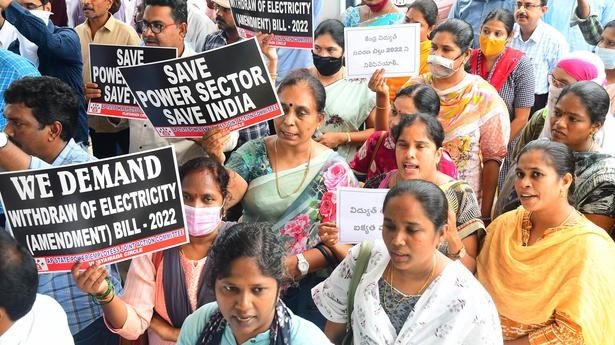By V K Gupta, Spokesperson, All India Power Engineers Federation (AIPEF)

A new trend is emerging across the country where the private companies are filing petitions before state electricity regulators for a parallel license under Section 14 of the Electricity Act 2002, allowing them to supply electricity in a particular area along with state power distribution company.
State run power utilities are responsible for the distribution of electricity in their states to all the consumers including agricultural, domestic, industrial and commercial consumers irrespective of their load. The urban and high-value consumers are cross-subsidising the power to all small consumers in the entire state.
Private companies are maliciously invoking the draconian Section 14 of the Electricity Act 2003 for grant of parallel license to amass profit from cherry-picking these areas, taking advantage of the existing distribution network of the state power utility.
No parallel license in the same area should be allowed to cherry pick a few areas in the beginning at the cost of the existing licensee in the larger interest of state and electricity consumers. Distribution license must be given only based on complete network rollout in the identified area in terms of geographical coverage and not based on the selective rollout for high end consumers.
According to the Electricity Act 2003, the basic condition for obtaining parallel license for the distribution of electricity is that the private company should have its own substations and network of lines in the rea in which it has sought the license. Without making any investment, private licensees would be able to use the vast network built over the last 70 years by paying wheeling charges that would not even ensure recovery of interest on the investment.
The Electricity Amendment Bill 2022 which was introduced in the Lok Sabha in August 2022 provides that if the appropriate commission fails to grant the license or reject the application, as the case may be, within the time so provided, the applicant shall be deemed to have been granted the license.
Electricity is a concurrent subject and the Electricity Amendment Bill 2022, if passed in the coming budget session of Parliament, will shift the balance of power in favour of the Union Government and its entities. The proposed legislation is violative of the federal structure as ‘power’, being a subject covered by the concurrent list of the Seventh Schedule of the Constitution, rendered it mandatory for the Union Government to consult state governments on laws related to the same.
Amendment of sections 14(b) and 15 enables more than one utility to distribute power in the same area. Existing provisions also allow more than one DISCOM to distribute power in the same area but only after new entrant puts its own grid and network in place.
The Electricity Amendment Bill 2022 allows the new licensee to utilize the existing network just by paying ‘wheeling charges’ thereby implying that the risk of investment is borne by the existing licensee while the new entrant reaps benefit out of it. Therefore, the bill not only paves the path for selective privatization but also has the potential to hike power tariff.
The power engineers and employee unions have already raised their objections before the Standing Committee on Energy apprehending that move is a clear cut approach to ‘selective privatisation’ by carving out industrial and commercial consumers along with low loss making domestic consumer areas of the existing state distribution companies and punching a major financial blow to it. It may affect the financial condition of Discoms as they may not have enough money to pay the generators on monthly basis.
Government often compares the electricity supply provider to a mobile network provider which operates without any grid but electricity is supplied through a dedicated network only. For this kind of cherry picking of big industrial and commercial consumers by a new licensee, and the existing power distribution company will be left with only rural and domestic consumers that involve a higher percentage of transmission and commercial losses.
The Electricity Amendment Bill 2022, if passed in Parliament, will empower the private sector who will cherry pick its customers, creaming profits from major consumers and leaving poorer consumers to the financially challenged public sector.
